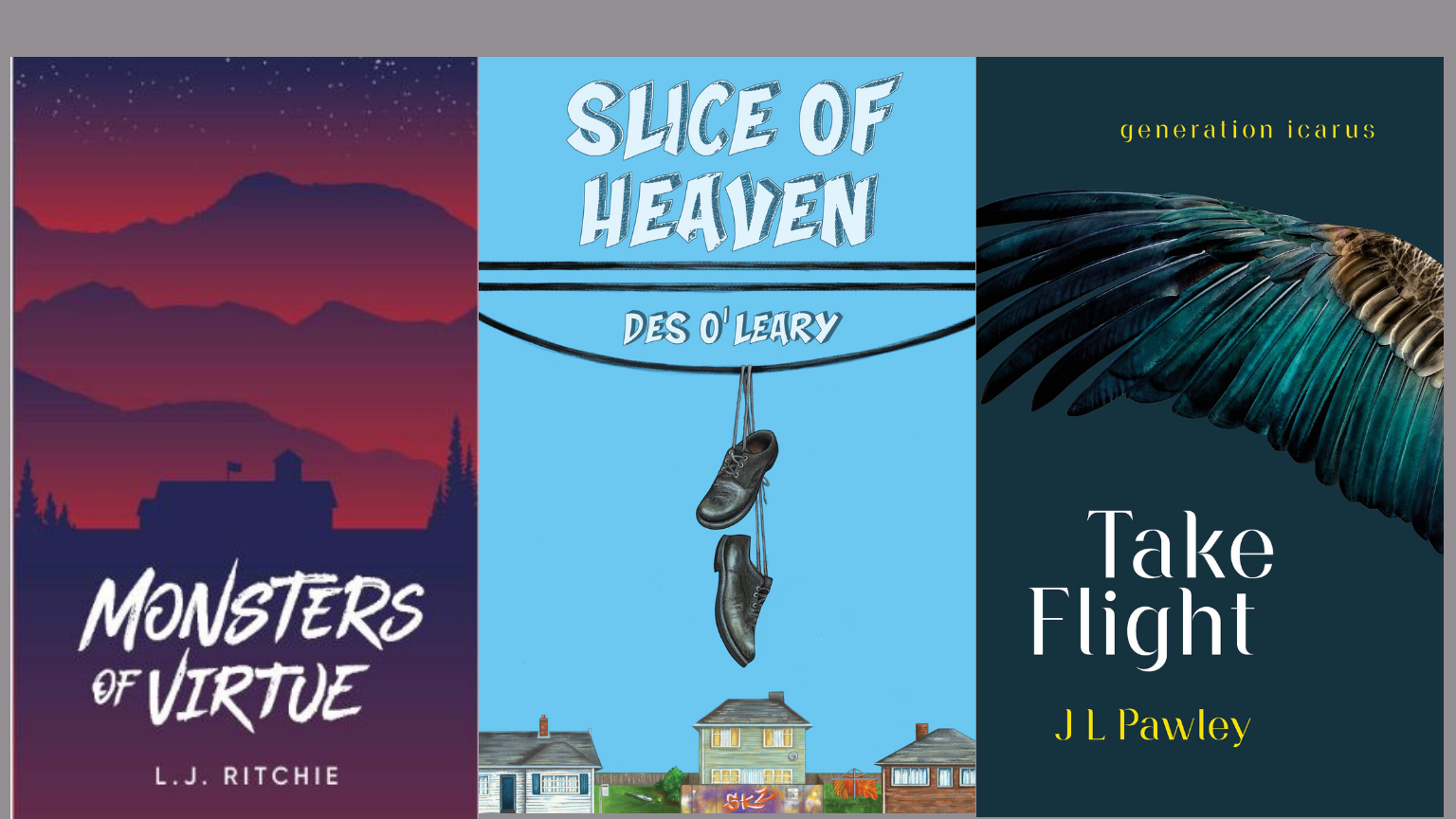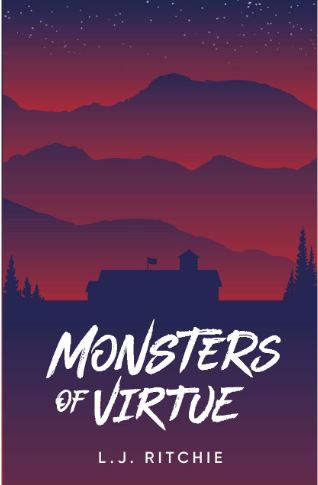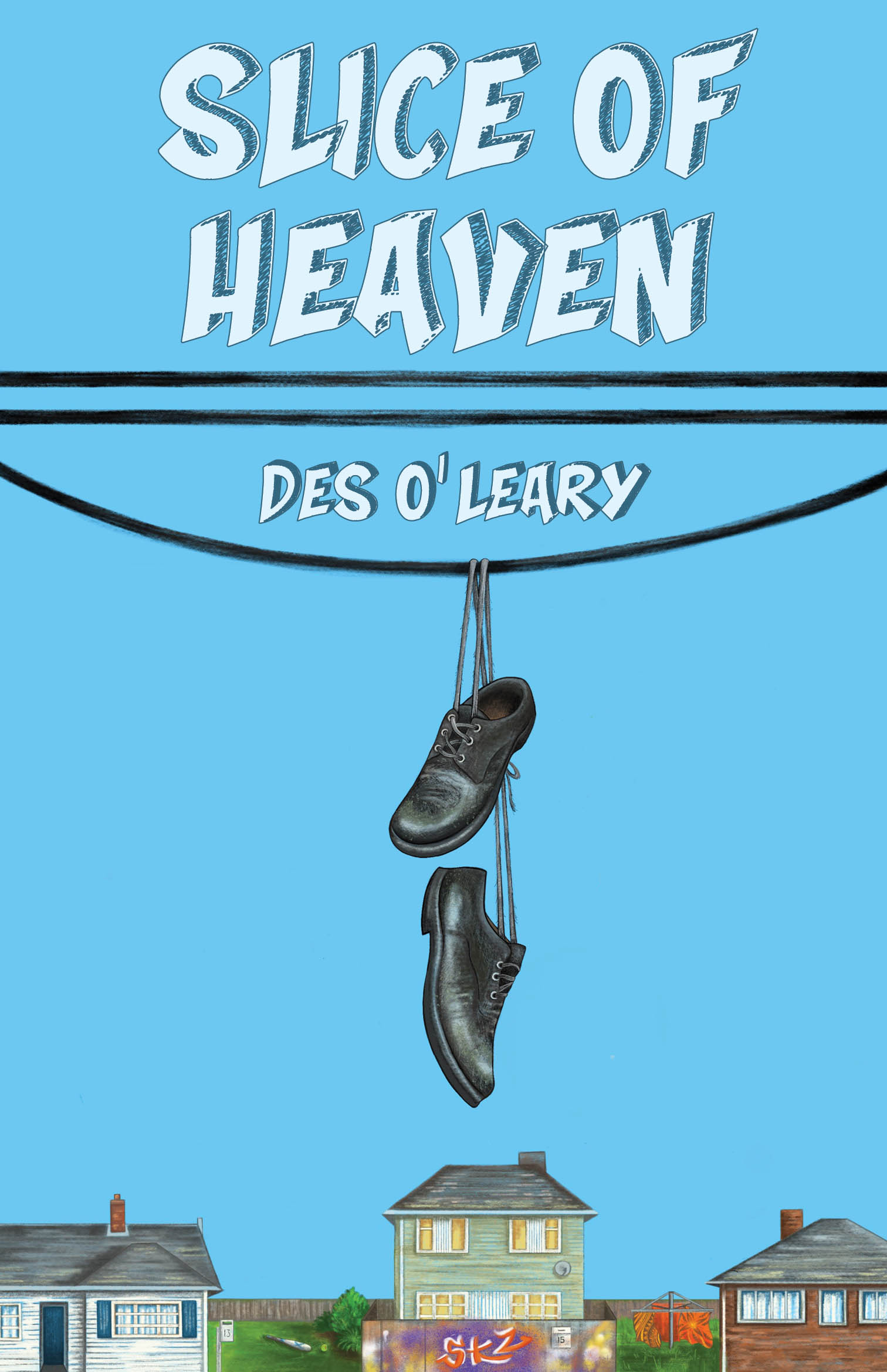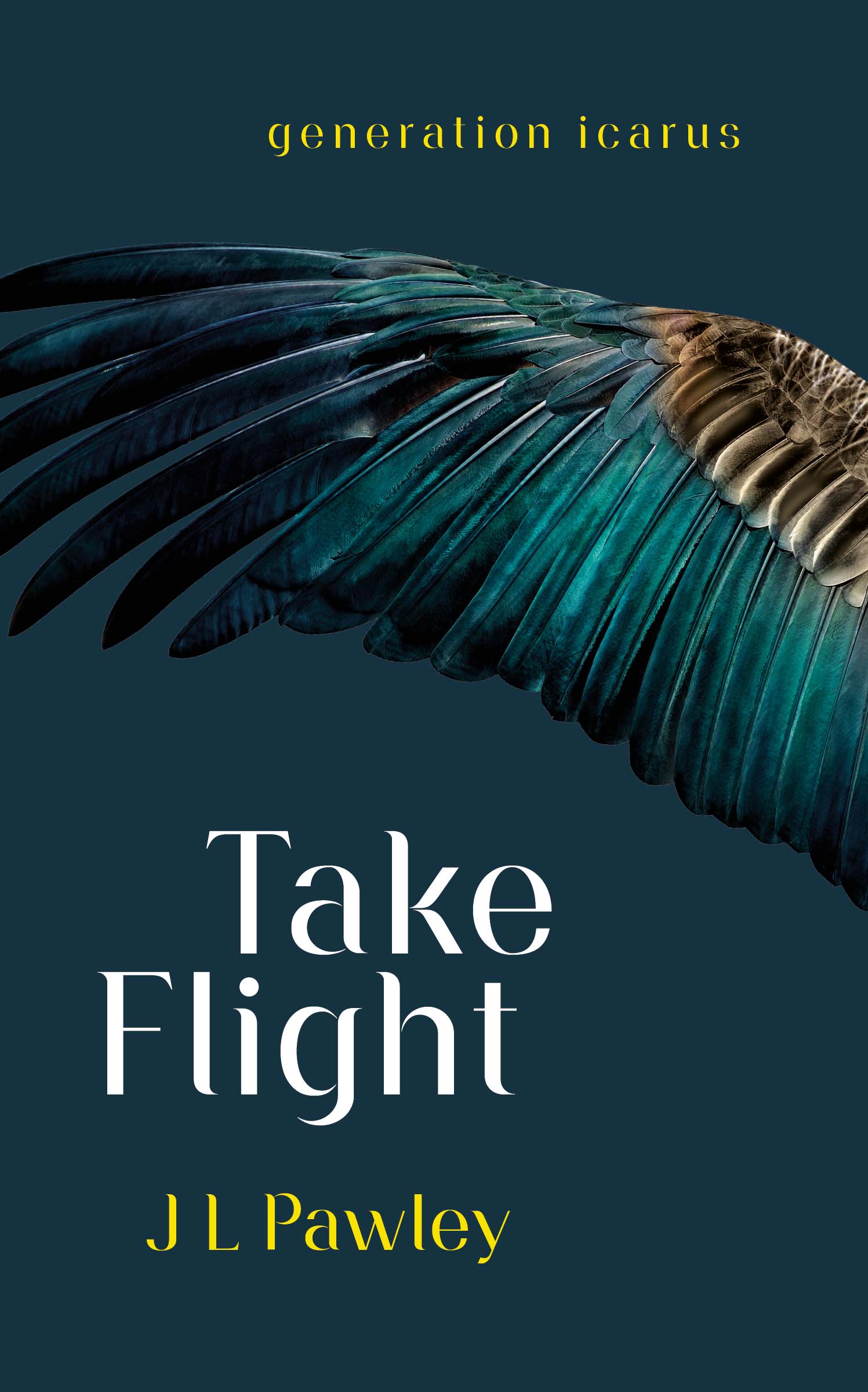Sarah Forster reviews three fantastic new New Zealand YA titles. These are three quite different titles, from Take Flight, set in a world where a group of teens have gained wings and the power of flight; to Slice of Heaven, where a group of kids in detention become softball champions; to Monsters of Virtue, set in an alternate future, where Eugenics has created a ruling class. All are fantastically unique representations of the inner world of teens.

Monsters of Virtue, by L. J. Ritchie
Did you know that New Zealand very nearly passed a law legalising the sterilisation of ‘mental defectives’ in the late 1920s, just prior to the Great Depression?
L. J. Ritchie takes this as a jumping-off point for his YA novel, Monsters of Virtue, and constructs a world in which the most perfect children are placed into a special school in a new town named Galtonia. This town is being built to be occupied by only the most genetically pure race of people. These people are known as Guardians, after Plato’s Republic.
‘Passing a test does not make you a Guardian. Fine clothes and makeup do not make you a Guardian. Heredity is all that matters.’
Persephone spits that at Eve as she shears her long blond hair off, at the beginning of Eve’s ordeal to be accepted into the Class. The Class are not only Guardians, they are the self-appointed leaders of the school, and they make the rules, setting themselves above all laws. They set the curriculum, they employ the teachers, and they interpret the peculiar letters of their founder Walter Hannay by the light of Plato’s Republic. From this 2,000-year-old text: ‘At great festivals, we will pair and marry Guardians by drawing lots – but the lottery will be rigged to pair the best with the best, to produce the most desirable offspring.’ Plato literally wrote the rule book for positive eugenics.
The Class are not only Guardians, they are the self-appointed leaders of the school, and they make the rules, setting themselves above all laws.
There are three parts to this book, each told from a first-person perspective by members of the Class group who have a reason to be there other than a desire to create a genetically pure future for New Zealand. First, as noted, is Eve, who we know is a spy. Second is Orion, and third is Nyx. The voices are distinct and Ritchie manages each character’s first-person voice extremely adeptly, as well as giving each a storyline that leads his reader through the levels of complexity of the understanding of the eugenics system that is in place, without too many philosophical jolts.
Eve is induced into the Guardian Class, and soon after this ceremony an act occurs that becomes the turning point for the plot. It feels occasionally as though we are plodding through Eve’s growing understanding of the reason Galtonia exists, but her spying – learning about the punch-card machine that matches perfect parents, the unique interpretation they have of ‘survival of the fittest’ and more – gives us valuable background information as we move into the much more philosophically challenging mind of Orion, who, while contemplating leadership, tells us about the beginning of the Class.
We pick up with Orion, a member of the Class, as he performs the act upon which everything turns. ‘They make my act the wrongest act, but in the moment it felt so true. There must have been reasons, and they must have been virtuous – because if they weren’t, I don’t know what to do.’
‘They make my act the wrongest act, but in the moment it felt so true. There must have been reasons, and they must have been virtuous – because if they weren’t, I don’t know what to do.’
After living by the Republic-based rules for three years – the school was founded in 1929 and we pick up the story in 1932 – while they are well along the road in convincing themselves they are the pinnacle of humanity, the Class becomes aware of something within the papers which is not under their control. This point is when we change to see things from Nyx’s perspective. Each of them, having ruled recklessly without consequence, have to reconsider what their actions now mean for those further down the pecking order in the future. And they have to make some difficult decisions.
It’s an understatement to say that this book will give you a lot to think about: the future we may have ended up with, to begin with. As Nyx considers first up, ‘Is it better to be feared than to be loved?’ and the questions just get tougher from there. Now, full confession, I studied Philosophy at university– Moral Philosophy in particular – largely due to my interest in Socrates, after learning about him in Classics. Teenage brains are wired to care about fairness and morality, so I posit that this book is going to be an absolute hit with that particular group of 14 – 19-year-old teens who want to change the world (as well as adults). I’d recommend it particularly for fans of Mandy Hager and Patrick Ness. And Lord of the Flies...
L. J. Ritchie has taken a tough topic and handled it with delicacy and intellectual rigor that is almost flawless. Monsters of Virtue is a feat to be celebrated.

Slice of Heaven, by Des O’Leary
This novel, based in a fictional high school in South Auckland, is a stunningly well-wrought story about the lives of a multi-cultural group of boys who are thrown together while on detention to form a softball team.
Author Des O’Leary worked for many years at Aorere High School, and has based this book on the lives of students he knew while teaching and coaching softball there. While the core voice of the book is that of Sione, O’Leary has been ambitious in allowing each of the voices of the boys be heard at key moments throughout the book.
Sione is in detention. He’s scared of some of the boys and girls there with him, and worried what his family will say when he gets home. Mr Green needs some players for the Junior Boys Softball Team, and the game starts at their school in 20 minutes. All the junior boys in detention are drafted in, and in a story worthy of a Wellywood treatment, they find themselves bonding as a group and growing up a little in the process of becoming a team.
This is not cheesy, as it might have been. It’s hilarious, touching, and for a white girl from the West Coast of the South Island, about as far different from my lived experience as it is possible to get. These stories are needed, and O’Leary shows his fictional teens great respect.
These stories are needed, and O’Leary shows his fictional teens great respect.
In one chapter, the boys need to each get $20 to pay for the costs related to travelling to away games and the use of school gear. Each boy takes a different approach to getting this money, and the narration of the choices they make shine a light on the values of families from different cultural backgrounds, as well as choices that are taken away when family isn’t behaving the way a family ought to.
‘Redemption picked his way through the gloom of the living room. It smelled of smoke, stale liquor and bodies… He bent and reached into the pocket of a pair of jeans on the floor.’
There is violence in this book, gang warfare, extreme poverty, abuse, but also brotherhood as they work through their differences to figure out how to be a team. The stories O’Leary tells are of hard-working kids who keenly feel the pressure of their role as males in Pasifika, Vietnamese and Hindu culture. Like in Bro’Town, some of the racial epithets they use on one another can be hard to read, but O’Leary seems to me to have taken these voices down without being dismissive, or sugar-coating reality.
There is violence in this book, gang warfare, extreme poverty, abuse, but also brotherhood…
‘Raj wished people of different ethnic groups would accept each other better.
TJ wondered if an oranga-tangi was like a boomerang.
Redemption wondered if his father would get drunk again tonight and give him another hiding.’
This is definitely one for every school library in New Zealand. It tells the stories behind often mis-represented groups of people, most of whom have come to New Zealand recently for a better life. The prose is crisp and well-edited, and I think O’Leary is definitely a contender for Best First Book in next year’s Book Awards.

Take Flight, by J L Pawley
Take Flight is J. L. Pawley’s sequel to Air Born, which made quite a splash on its release last year, with film rights snapped up prior to publication. Both books tell the story of seven ‘angel’ teens – generation Icarus – and are the first two books in a series.
In the first book, we were carried along with the story as the teens find one another and form a group to train with their wings, while hiding from the Evolutionary Corp (the Evos) and the Angelists alike. In Take Flight, we catch up with them on a training run, as two helicopters emerge from the mountains and capture Tui and then, in a dramatic scene, most of the rest of the Flight, as they are known.
In Take Flight, we catch up with them on a training run, as two helicopters emerge from the mountains and capture Tui…
Two remain free, including Condor, the black-winged, fervently Catholic Icarus; and Kestrel, the blonde-winged Icarus. Each of the Icarii have different racial backgrounds, and as the story progresses, we begin to get an inkling of who is responsible for their existence.
Owl and Raven are different from the others – they don’t speak well, and the reason for this is clarified as we learn that to the Evos, they are known as specimen One and Two. ‘Not-Owl’s face tightened. “I want you to get over here, right now, and explain WHY MY DEAD BROTHER IS STANDING BEHIND THIS GLASS!”’ Not-Owl, otherwise known as the Heir Frederik; and Not-Raven, otherwise known as the Heir JingYing, look like the perfect humans – but looks can be deceptive, as we learn through the events of this book. The characters we know as Owl and Raven were raised in this lab after experiments went wrong with the Heirs’ brother and sister respectively.
Pawley is very measured in the way she fills in her world, and she is particularly good at action writing, never letting us lose the thread of the story despite multiple narrators. We get just enough information to make us want our innocent heroes to survive. I also really like the way in which she’s created her characters, giving them each complementary strengths – like Captain Planet, or perhaps Ninjago – but strengths of humanity, with the only super-human strength each of them has being their wings. The Icarii’s world is our own, with a few added details to make it more interesting.
Pawley is very measured in the way she fills in her world, and she is particularly good at action writing, never letting us lose the thread of the story despite multiple narrators.
Possibly predictably, my favourite Icarus is Tui – the only Icarus who kept her real name. She is Māori, and was a nursing student prior to growing wings. In one chapter, Tui tells her story to the four walls of her solitary confinement cell at the Evos’ base. She talks about racism, and multiculturalism. ‘Just in that one strip of shops, there was Uncle in the fish and chip shop, the Japanese couple running the Chinese takeaways, the Sikh brothers managing the petrol station on the corner, the Hindu family in the dairy, the Iranian barista in the cafe, and the grumpy British bugger and his Kenyan husband in the bakery. Just another normal part of Auckland.’
The Evos run a series of experiments on the Icarii, which by the middle of the book, number eight in total. There is a white angel, who had been gifted by her French family to the Angelists – but is she a true angel? Some of them involve flight, others, for the girls, involve invasive surgery. There is torture, extreme tests, and much more. And finally, they find a way to work together to change their situation.
I’m not going to give the ending away. But I will say this is a well-put together tale, and recommend this for teens who are intrigued by the idea of genetic experimentation and cloning, and how these could change the meaning of humanity itself. Another for fans of Mandy Hager.


Sarah Forster has worked in the New Zealand book industry for 15 years, in roles promoting Aotearoa’s best authors and books. She has a Diploma in Publishing from Whitireia Polytechnic, and a BA (Hons) in History and Philosophy from the University of Otago. She was born in Winton, grew up in Westport, and lives in Wellington. She was a judge of the New Zealand Book Awards for Children and Young Adults in 2017. Her day job is as a Senior Communications Advisor—Content for Te Herenga Waka—Victoria University of Wellington.



